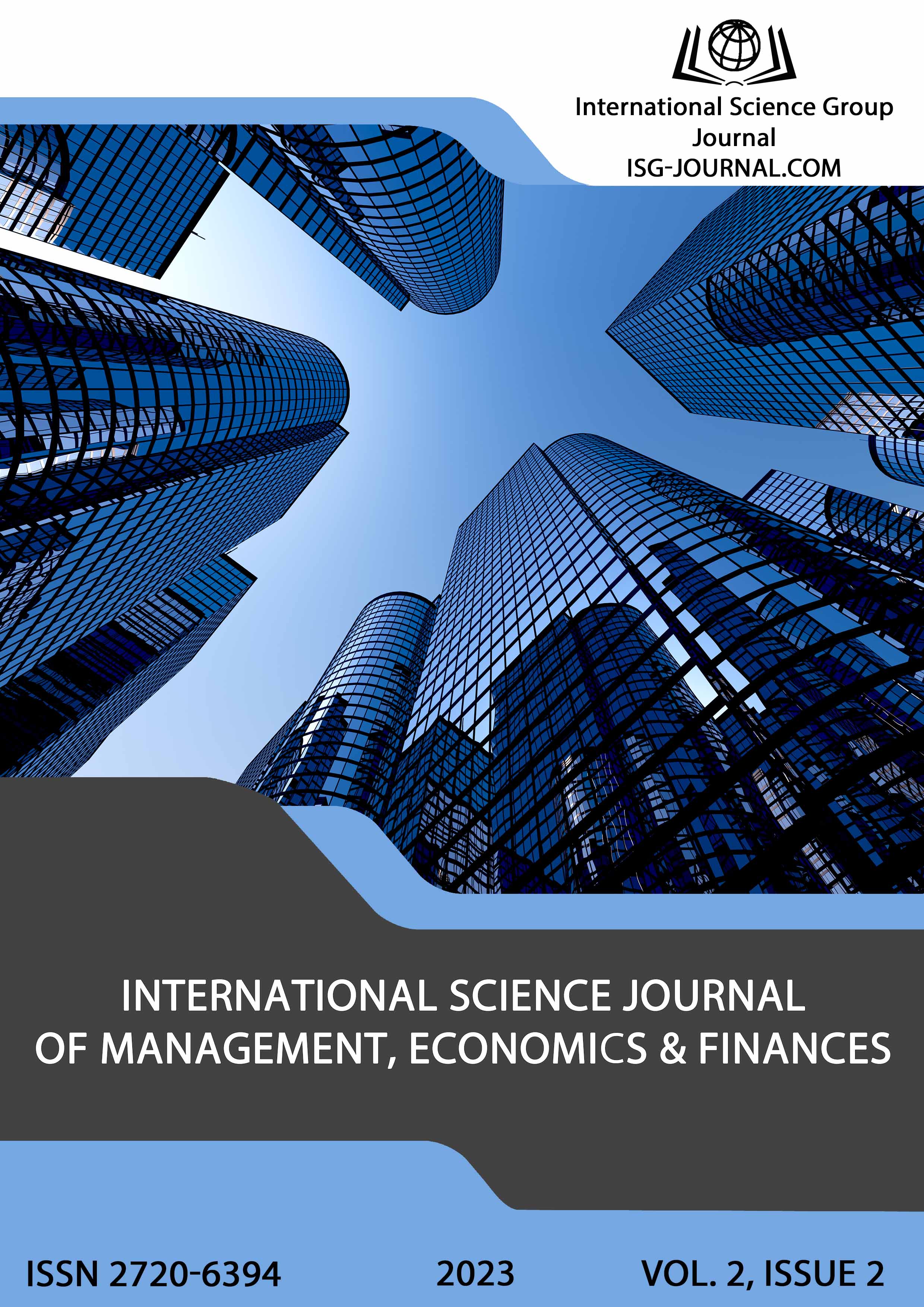Formation of the structure of the staff development management system of the enterprise
DOI:
https://doi.org/10.46299/j.isjmef.20230202.12Keywords:
personnel, personnel development, personnel development management, system, personnel structureAbstract
Currently, the main component of the company's personnel management is the creation of conditions for expanding knowledge, improving qualifications, improving skills and continuous development of employees. The growing role of knowledge in society, the development of knowledge-intensive, intellectual technologies requires flexible and adaptive use of the company's human resources, increasing the creative and organizational activity of employees, and the formation of a humanized organizational culture.
In the conditions of market relations, the introduction of new technologies into production, adequate methods of managing the development of personnel, which are based on progressive approaches to expanding their competencies, are of particular importance. Considering this, in modern production there are problems of modernization of classic personnel management systems and introduction of new management models, focused on the continuous development of the intellectual, cultural and creative potential of employees of enterprises and organizations on the basis of consulting.
From an economic point of view, the simultaneous influence of a number of factors on the development of personnel management creates certain contradictions. On the one hand, this is a decrease in personnel turnover, an increase in the level of competences, ensuring profit growth, and on the other hand, significant costs for improving the methods of managing personnel development. This inconsistency shapes the purpose and content of tasks related to the management of personnel development and approaches to their resolution.
A structural model of the personnel development management system of an innovatively active enterprise has been formed, with the definition of the purpose and tasks, resources, functions and stages of the personnel development process. The list of measures necessary for ensuring the formation and functioning of the personnel development management system of an innovatively active enterprise is determined. Personnel development is the most important condition for the successful operation of enterprises, since the readiness of personnel for development and self-education becomes one of the most important tasks.
References
Thomas N. Garavan, Pat Costine, and Noreen Heraty (1995). «Training and Development: Concepts, Attitudes, and Issues». Training and Development in Ireland. Cengage Learning EMEA.
Артеменко Л.П., Бацалай Т.М., Бацалай Ю.М.(2012). Формування механізму управління інтелектуальним капіталом інноваційно-активного підприємства. Вісник Чернівецького торговельно-економічного інституту. Економічні науки. Вип. 4. С. 139‒145.
Базалійська Н.П., Пилипчук У.О. (2014). Управління розвитком персоналу як функціональна підсистема управління персоналу. Молодий вчений. Економічні науки. №6. С. 73- 75.
Бей Г.В. Управління розвитком персоналу як метод забезпечення високого рівня залученості працівників. (2018). «Modern Economics». №8. С. 6-14.
Гризовська Л.О. (2014). Формування методичних підходів до оцінки ефективності системи розвитку персоналу інноваційно - активних промислових підприємств. Економічний аналіз : зб. наук. праць, Том 15. № 3. С. 12-20.
Гугул О. Теоретичні засади управління розвитком персоналу. (2013). Інноваційна економіка. № 6. С. 194‒198.
Грузіна І.А., В. І. Дериховська. (2014). Проблеми розвитку персоналу в системі стратегічного управління підприємством : монографія. Х. :Вид. ХНЕУ ім. С. Кузнеця, 252 с.
Дем’яненко А.М. (2015). Удосконалення системи управління розвитком персоналу на підприємствах. Технології та дизайн. Економіка. № 2 (15). С.1–11.
Дороніна О.А. (2018). Трансформація підходів до мотивування персоналу в умовах новітньої управлінської парадигми. Менеджмент та підприємництво: тренди розвитку. Вип. 3 (05). С.23–32.
Єлець О. П. (2016). Мотивація інноваційної діяльності персоналу. Економічний вісник Запорізької державної інженерної академії. Вип. 2 (02). С. 78–83.
Єпіфанова І. Ю. (2018). Інноваційний потенціал підприємства: сутність, складові та фактори впливу. Економіка і суспільство. №14. С. 354–360.
Жиленко А.Ю.(2018). Особливості управління розвитком персоналу на підприємстві Молодий вчений. № 11 (63). C. 418–420.
Калініна С. П. (2017). Передумови конкуренції за людський потенціал: молодіжний сегмент міжнародного ринку праці. Вісник Приазовського державного технічного університету. Серія : Економічні науки. Вип. 33. С. 174–179.
Колосок В. (2019). Характеристика моделей управління розвитком персоналу промислового підприємства. Економіка і суспільство. № 9 (100). С. 8-12.
Колот А. (2016). Цінності трудового життя та гідна праця: філософія взаємодії і розвитку Україна: аспекти праці. №1. С. 3–12.
Downloads
Published
How to Cite
Issue
Section
License
Copyright (c) 2023 Олена Бабчинська, Ольга Посвалюк

This work is licensed under a Creative Commons Attribution 4.0 International License.






